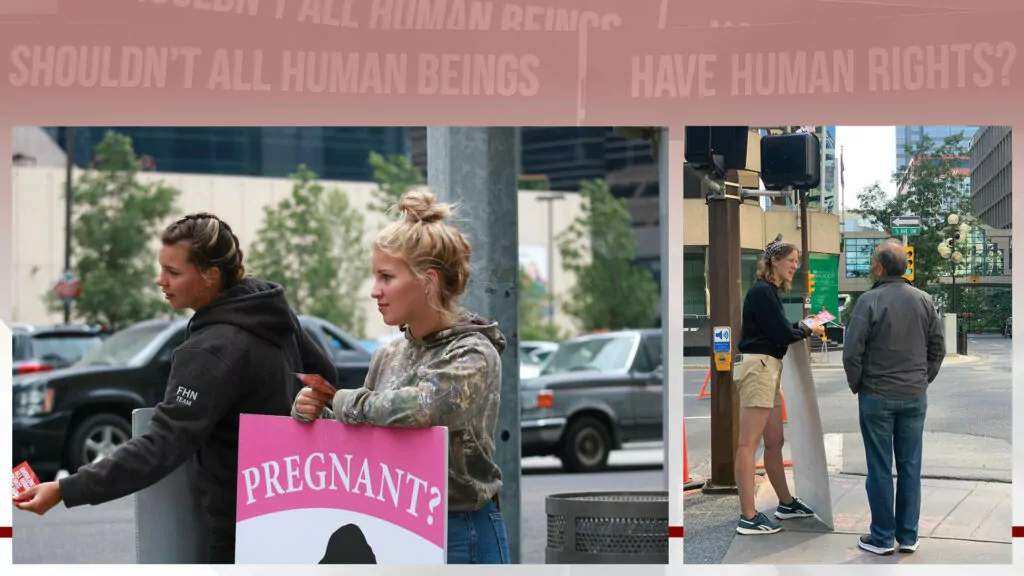
Assorted
The peculiar blessings of Covid
God used even this evil for good
*****
In the early spring of 2020, Christian pastors from across Alberta sat on a telephone townhall with Alberta Premier Jason Kenney and Chief Medical Officer Deena Hinshaw. On the call – which had been scheduled to offer Alberta’s religious leaders an opportunity to ask questions about Covid-related regulations – pastors shared opinions, asked for medical advice, and requested clarification on the government’s early pandemic guidelines. Uncertainty about the future of the pandemic and its effect on in-person worship dominated the conversation.
In the months following the townhall, as pandemic restrictions became more hotly contested and closely enforced, pastors and other church members reckoned with deep theological questions about the nature of human embodiment, the importance of in-person worship, and the efficacy of the Lord’s Supper.
In addition to such practical theological questions, Canadian Christians – like their non-Christian neighbors – faced a litany of disappointments and devastation over the course of the pandemic era. These included cancelled weddings, cancelled funerals, the death of loved ones from Covid, the death of loved ones from suicide, frayed family relationships, and crushing financial hardships.
As a result, many Christians – and most non-Christians – now view the pandemic as a long international nightmare which must never be repeated, and which would best be forgotten. This response to the human devastation of the Covid pandemic is natural. And in many ways it might even be healthy: a desire to constantly relitigate past events at the expense of tackling present problems serves no good purpose.
However, underneath the severe difficulties of the Covid-era are surprising proofs of God’s covenant-keeping faithfulness – proofs that should make Christians rejoice in God’s sovereign activity during the Covid pandemic, and should produce hope about God’s activities amid today’s often-grievous cultural developments.
Nothing to do but be renewed
For some, the hated pandemic restrictions became the means through which God saved their soul.
Allison, a young government employee from Alberta, spent much of the pandemic in the United Kingdom, unable to return home. As a result, she stayed at the house of a kind friend who invited her to watch livestreamed worship services. Convicted of her sin and curious about the God proclaimed in the sermons, Allison’s atheistic thinking began to fall apart. Renewed by the Spirit, she embraced the gospel. Today, she is a member of a local church in Calgary, having rejected the godless ideology of atheism and instead now embracing the whole counsel of the God who purchased her with His blood.
Jared, a young data scientist from Hong Kong, was unable to find work at the height of the pandemic. Forced to change plans, he moved to Canada to pursue his education and career in a new country, eventually taking a job in Calgary. With no immediate social connections in his new city, Jared started consuming hours of YouTube content and the site’s algorithm eventually led him to Christian apologetics. Intrigued by arguments defending Christianity, he was learning as much about the Christian faith as he could, and soon turned to Christ for salvation. He now faithfully serves his local church where he is beginning to teach theology classes to fellow church members.
As Covid spread throughout the world in March of 2020, God carefully laid the foundation for Allison and Jared’s conversion. Long before patient zero, God had chosen vessels of mercy to be converted during the pandemic and ordered the decade’s darkest circumstances to bring His chosen sons and daughters into the marvelous light of His grace.
Public education exposed
A second proof of God’s covenant-keeping faithfulness during the pandemic is the dramatic expansion of Christian school and homeschool participation in Canada.
As school buildings closed, and mom and dad began to pay closer attention to the public school content that was now being streamed into their homes, parents didn’t always like what they were hearing. Some then responded by homeschooling their children, or by placing them in faithful Christian schools. As a result, both homeschooling and Christian school registration rates skyrocketed in the immediate aftermath of the pandemic.
Jeff Park, the Executive Director of the Alberta Parents Union, commented that, during the Covid pandemic, parents,
“…saw hostility to their values, and less competence than they had always assumed. Public trust in public schools took a big hit, especially for people of faith.”
According to Park, “God meant for good – to wake up the sleeping giant of Christian parents and save their children from godless indoctrination.”
God is using the previous difficulties of school closures to help Christian parents think more deeply about their children’s education. And He is causing many to ask deep questions about the kind of education that will most benefit the souls of their children.
Conclusion
The Lord grieves the death, division, and persecution of His people. However, He is never surprised by such occurrences. As Christians braced for the unknowns of a viral pandemic in early 2020, God had already prepared for the salvation of men and women who previously cursed His name. As congregations bitterly disputed about distancing requirements, God applied His pruning to strengthen the unity of His church. As governments made school closure decisions, God established the steps of Christian families.
In 2020 – despite the fears of many of His people – the God of Abraham, Isaac, and Jacob did not falter in His promises to the church He’d bought with His own blood. He used a virus to build and strengthen His chosen assembly, against whom the gates of Hell have not prevailed.
And if God’s faithfulness did not falter through some of the most dramatic world events of the modern era, should we not also have joyful confidence that He will use every other sin and disaster that besets Canadian society for the good of those who love Him?
None of this lightens the tragedy of death, the pain of unhealed division, or the grievousness of sin. It does, however, offer a small glimpse into the eternal perspective.
As we approach today’s news – war in Ukraine, war in Israel, a society in rapid moral decline, skyrocketing inflation – we must not do so as those without hope. Instead, we do so with the expectation of eternal joy and with a lasting confidence in the wisdom of an Almighty King who will one day split the sky and prove forever that what man meant for evil, God meant for good.






























